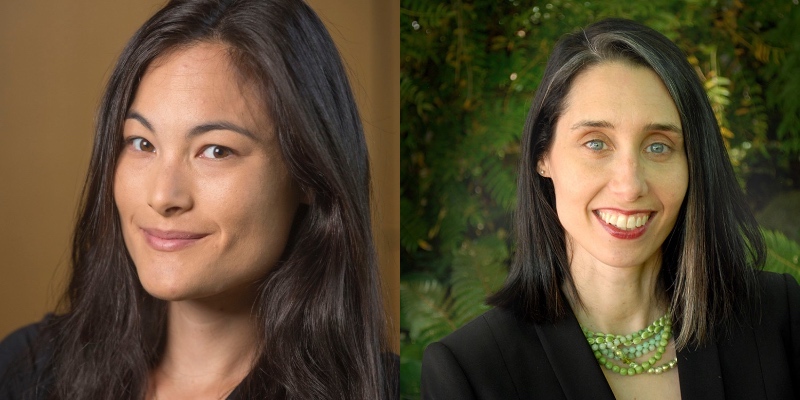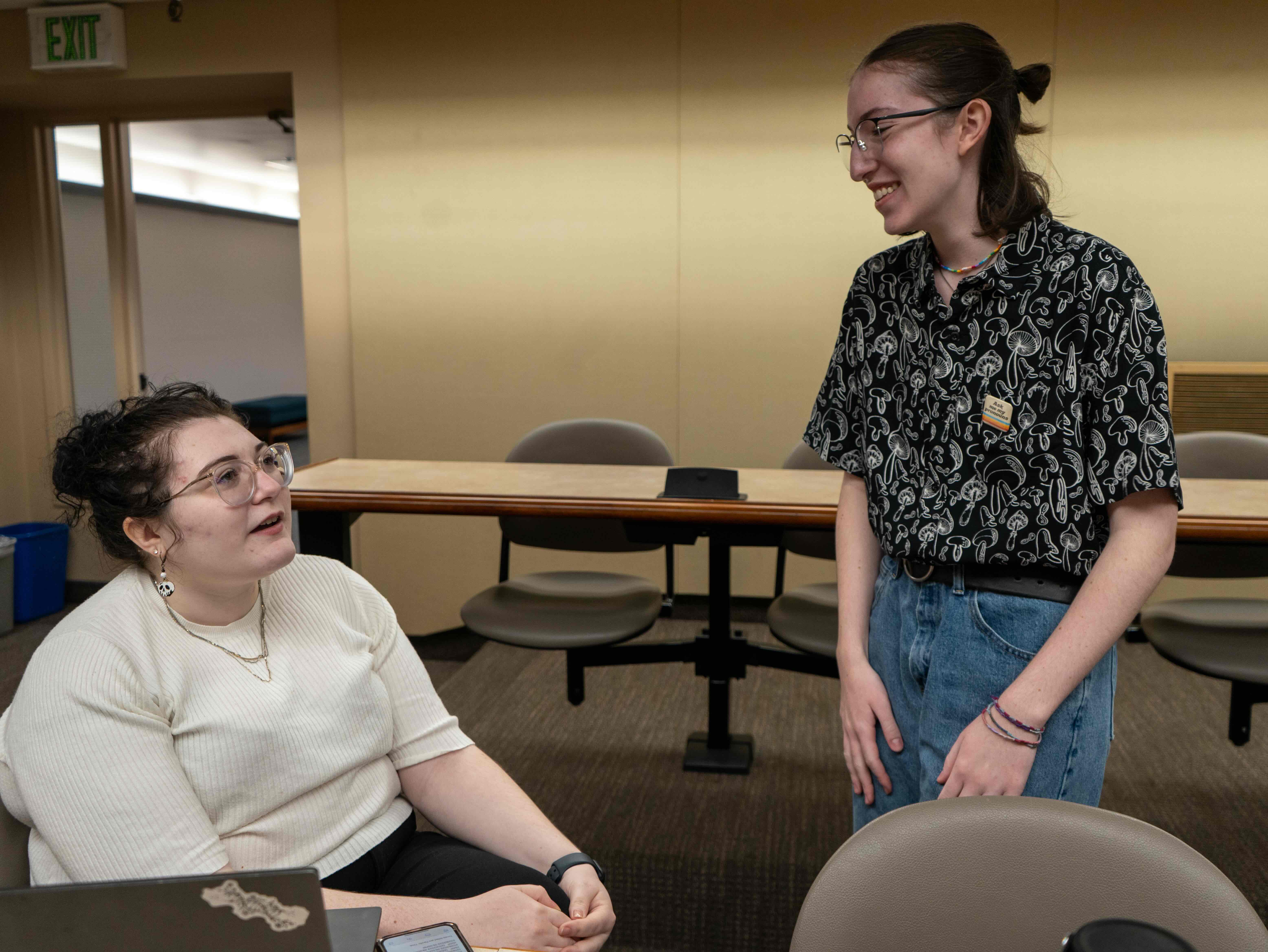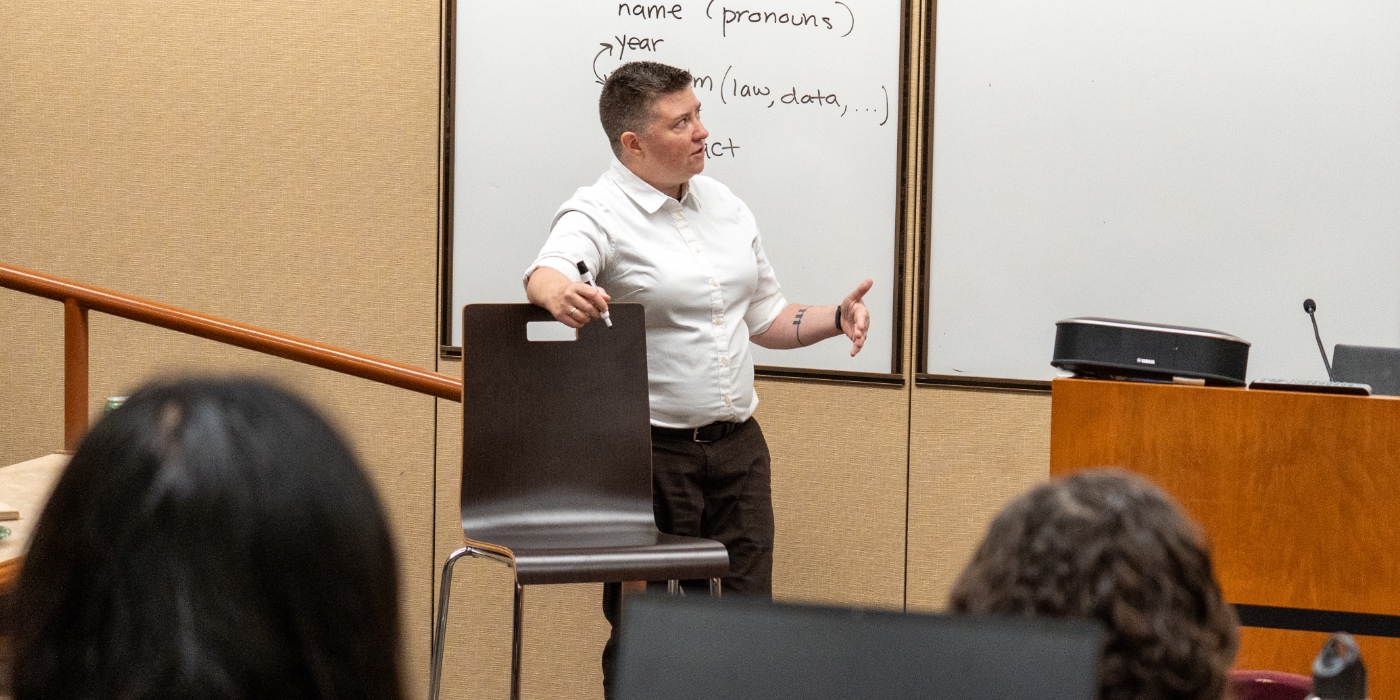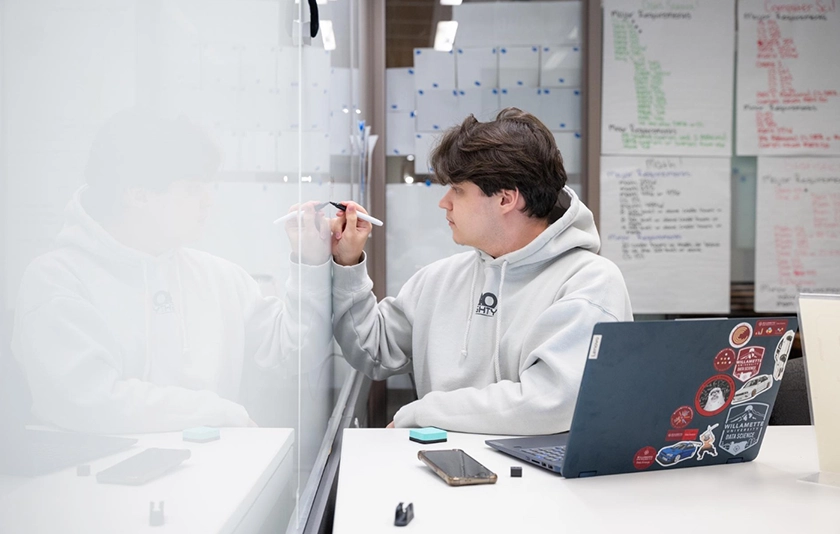Out of the many issues at stake in the 2024 election, you likely won’t hear much about government data. While data policy may not make frontpage headlines, it can have significant consequences — from who gets counted in the U.S. Census to how power and resources are allocated among different communities.
In a recent workshop and panel discussion with federal policy expert and advocate Meghan Maury, students from Willamette’s School of Computing & Information Sciences and the School of Law engaged in a lively discussion about the ethics of data collection, the implications of federal data policy, and the role of data in civil rights advocacy.
The workshop was moderated by Assistant Professor of Law Robin Maril and Assistant Professor of Statistics and Data Science Heather Kitada Smalley. “This is a uniquely Willamette collaboration between the Law and Data Science programs,” Smalley said. “Our students are passionate about applying the skills they have developed in our classrooms to helping others and being active citizens.”

Maury works to help bridge the gap between federal data policy and social justice to ensure that traditionally underrepresented groups are accurately counted and considered in funding and policy decisions. During the session, Maury shared their experience working in the White House and the Department of Commerce to help shape federal data policies. Maury also discussed their work advocating for LGBTQ+ civil rights inside and outside of government. In addition to serving in the federal government, Maury worked as Policy Director for the National LGBTQ Task Force, where they advocated for issues such as data privacy, equal representation in the U.S. Census, and data collection on individuals living with HIV.
Maury says that what we choose to measure matters. They used the example of funding and resources for LGBTQ+ communities during their service in the White House. “We lack consistent, robust data on the experiences of LGBTQ+ people across a range of life experiences: housing and homelessness, health care, the criminal legal system, immigration, access to public benefits, finding and retaining employment, navigating the foster care system, and many others. And we lack that data not because it’s impossible to collect, but because federal policies and practices have failed to fully count LGBTQ+ people.”

Students were inspired by Maury’s experience using data as a tool to make a real-world impact. Talia Goldenberg BS’27, a second-year Data Science major said, “This event was packed full of things I'm passionate about, like using data to protect communities in need,” Goldenberg said. “I'm also interested in looking at how policy, law, and data are being used to harm or support communities.”



